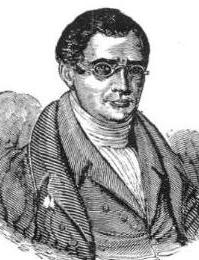Ephraim Kingsbury Avery
[1] On December 21, 1832, farmer John Durfee of Tiverton, Rhode Island, discovered a woman's corpse hanging by her neck from a rope tied to a stackpole used to dry hay.
This jury overruled the earlier finding of suicide and accused Ephraim Kingsbury Avery, a married Methodist minister, as the "principal or accessory" in her death.
[citation needed] Cornell's pregnancy led another Methodist minister to reject the responsibility of burying her the second time (she already once been exhumed for autopsy).
The next day (Christmas being not widely celebrated in largely Puritan New England), a steamship was chartered to take one hundred men from Fall River to Bristol.
The deputy sheriff of Fall River, Harvey Harnden, obtained from a Rhode Island superior court judge a warrant for Avery's arrest.
[citation needed] There were a great deal of external concerns interested in the case of the young Methodist girl who had been employed at the Fall River Manufactory.
The six lawyers for the defense, hired by the Methodist Church, were led by former United States Senator and New Hampshire Attorney General Jeremiah Mason.
Under Rhode Island law at the time, defendants in capital cases were not permitted to offer testimony in their own defense, so Avery did not get the opportunity to speak.
Although Jeremiah Mason maintained that Avery had not been present when the murder occurred, the larger part of the defense strategy was to call into question Sarah Cornell's morals.
The defense characterized her as "utterly abandoned, unprincipled, profligate," and brought forth many witnesses to testify to her promiscuity, suicidal ideation and mental instability.
Sarah Maria Cornell had come from a fairly prosperous and prominent Connecticut family, but had fallen on hard times after her father, a successful paper cutter, had abandoned them.
[4] The prosecution largely attempted to portray the Methodist clergy as a dangerous, almost secret society, willing to defend their minister and the good name of their church at any cost.
[3] A medical debate centered around whether the unborn child was in fact conceived in August, although Puritan standards of propriety regarding the female body sometimes made it difficult to elicit factual information.


